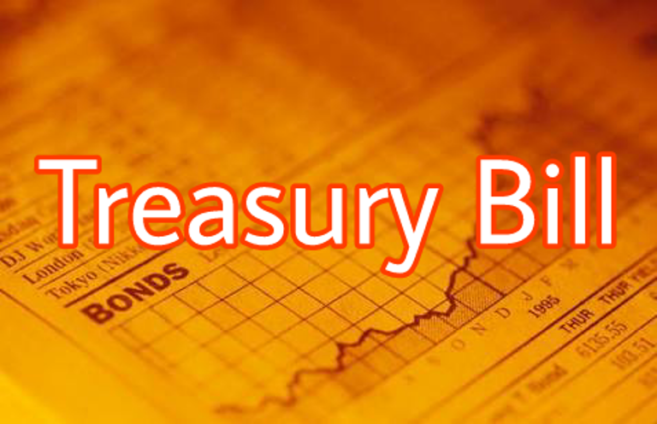Government exceeded its Treasury bills sale target for the fifth week running by GHS46.39 million.
This was after the Bank of Ghana sold GHS1.073 billion of short term securities.
Analysts are attributing this to improve liquidity on the market.
Though lower than last week’s GHS60.9 million, it is better because the target for Friday’s auctioning was much bigger, at over a GHS1billion.
This is compared with GHS733 million the previous week.
According to the trading figures, the interest rate on the short term government instruments continue to remain steady.
Senior Research Analyst at Databank Research, Courage Martey tells Joy Business the recent payment of locked-up cash to depositors of defunct financial institutions has been doing the trick
“This oversubscription coincides with the period that government started making cash payments to depositors of defunct financial institutions. Remember this began somewhere late September. So over this period, the monies that came into the banking system or the financial system is being ploughed back into short term investments instruments.”
“We are in a period when the market is more oriented towards short term investment horizon than going long. So the funds that were paid to depositors of financial institutions has to be held in some accounts which is in the banking system, and so the banks are now investing in government securities, particularly at the shorter end of the curve”, he explained.
With chunk of the locked-up funds sitting with commercial banks paid, weekly Treasury bills auctioning is expected to be oversubscribed as banks will prefer cashing in on these risk free instruments rather than lending.
This is because there is a potential higher default by customers due to the impact of covid-19 on the economy.
Meanwhile, the yield on the instruments still hover around 14.10%.
September MPC Report
The September 2020 Monetary Policy Committee Report stated that interest rates on the money market saw mixed developments as rates on short to medium term instruments eased, but generally tightened at the longer-end in August this year.
On a year-on-year basis, the 91-day Treasury bill rate declined to about 14% in August 2020 from 14.7% a year ago.
Similarly, the interest rate on the 182-day instrument declined to 14.1% from 15.2%.
With the exception of the 6-year bond, yields on the 7-year, 10-year, 15-year, and 20-year bonds all increased.
Latest Stories
-
Petroleum Commission gives $3.6bn contracts to indigenous companies
29 mins -
COP29 ends with $300bn annual deal to fight climate change
41 mins -
Martin Amidu: Government must account to electorates for the violent conflicts before 2024 election
46 mins -
Disregard Wontumi TV presenter’s misleading broadcast on Election 2024 voting date – EC
2 hours -
Bawku crisis: ‘Merchants of conflict are exploiting Ghana’s fractured democracy’ – Martin Amidu
3 hours -
Telecel Ghana accelerates connectivity with limited 4G MiFi promo
3 hours -
I’ve no plans to leave comedy for movie production, says Basketmouth
3 hours -
Akufo-Addo seeks to use Bawumia to complete Akyem Agenda– Asiedu Nketiah
3 hours -
‘Bawku conflict politicised for electoral gains’ -Martin Amidu alleges
3 hours -
Let’s learn from ExxonMobil, high flyers must lead the way for mergers – AOMC Boss
4 hours -
‘Let industry players play the game ‘ – AOMC boss slams political interference in oil sector
4 hours -
‘So many regulations, yet corruption prevails’ – Dr Riverson Oppong on OMC oversaturation
5 hours -
At least 24 dead after two boats capsize off coast of Madagascar
5 hours -
Madina MP lauds White Chapel Youth Group for championing peace ahead of elections
6 hours -
Man United settle for draw at Ipswich Town in Amorim’s first game in charge
6 hours

